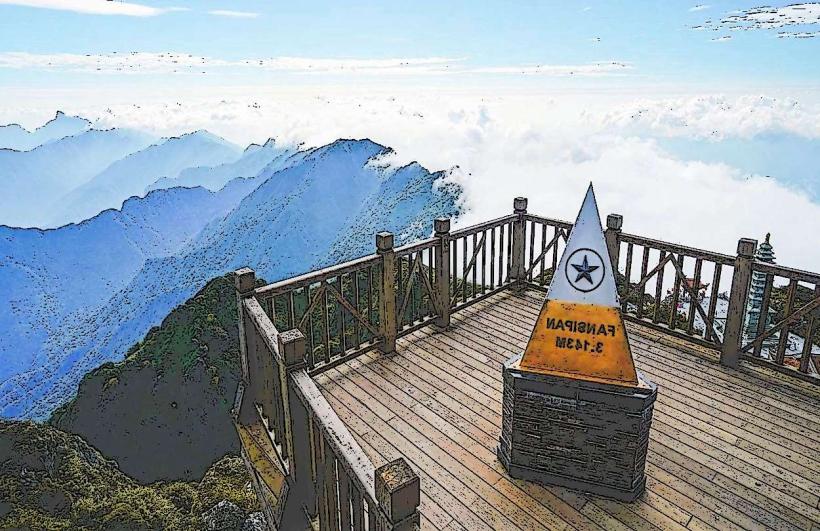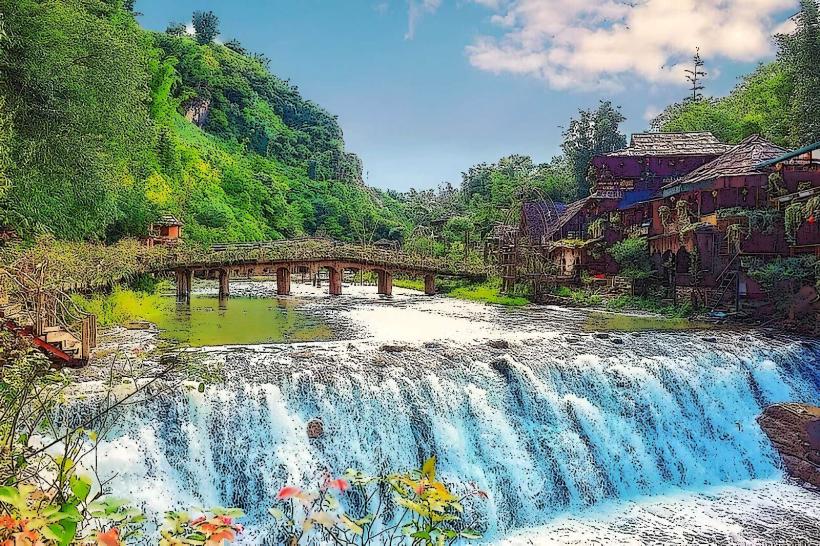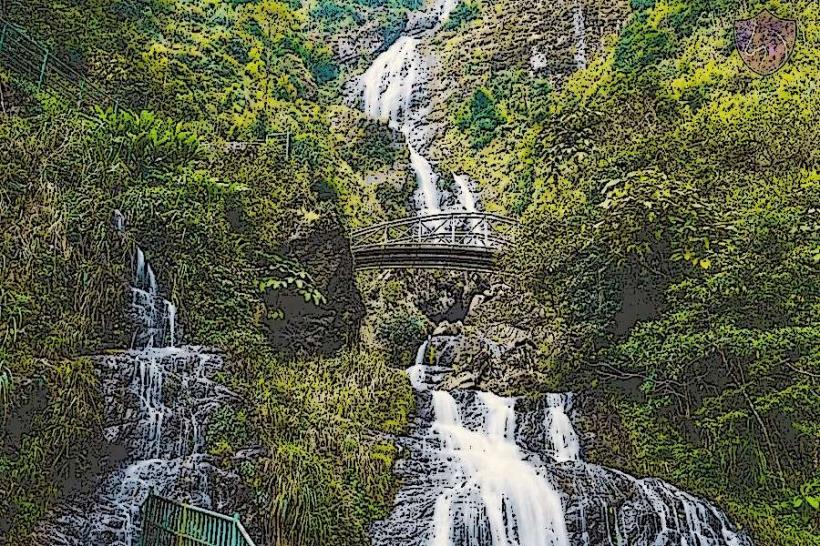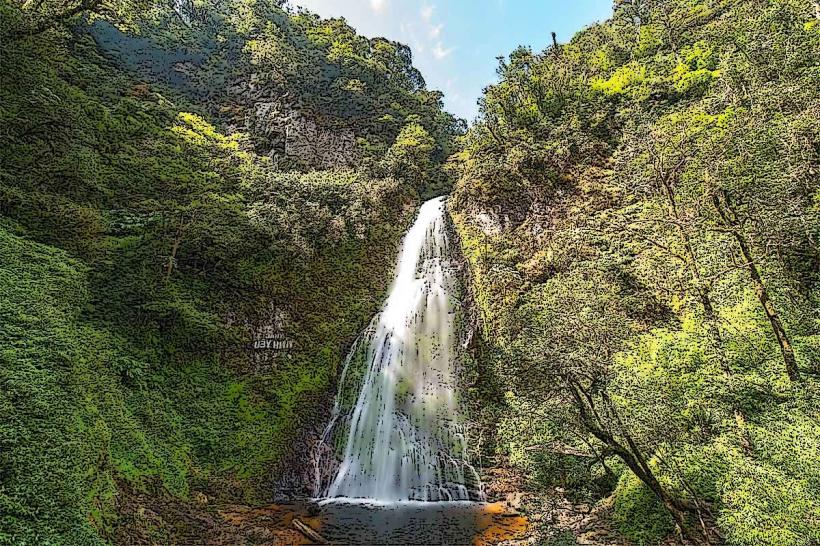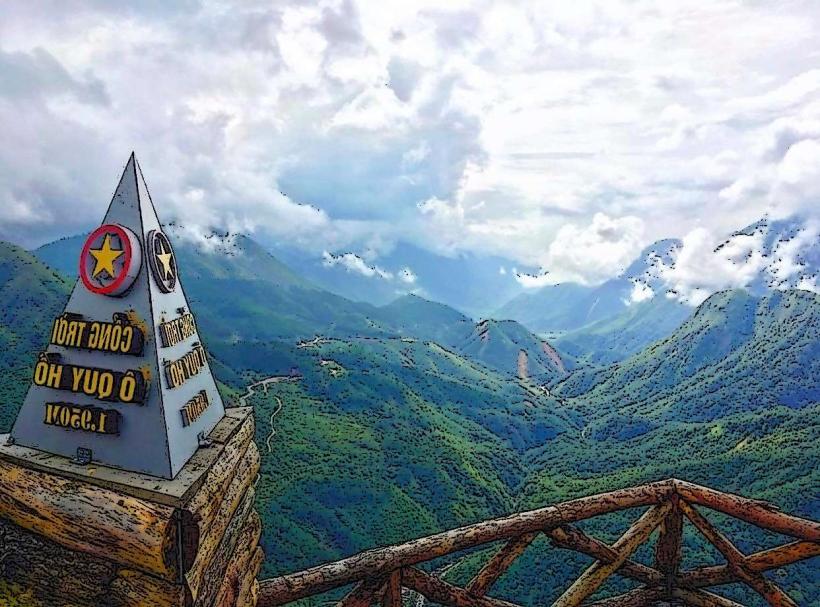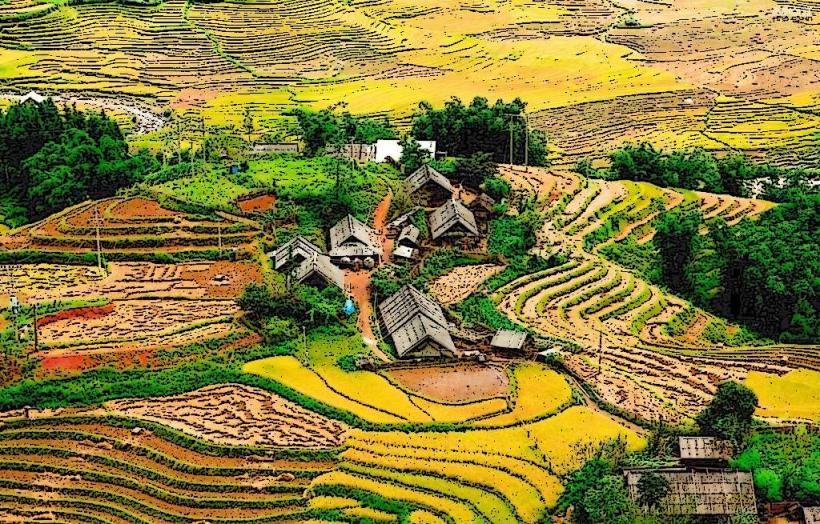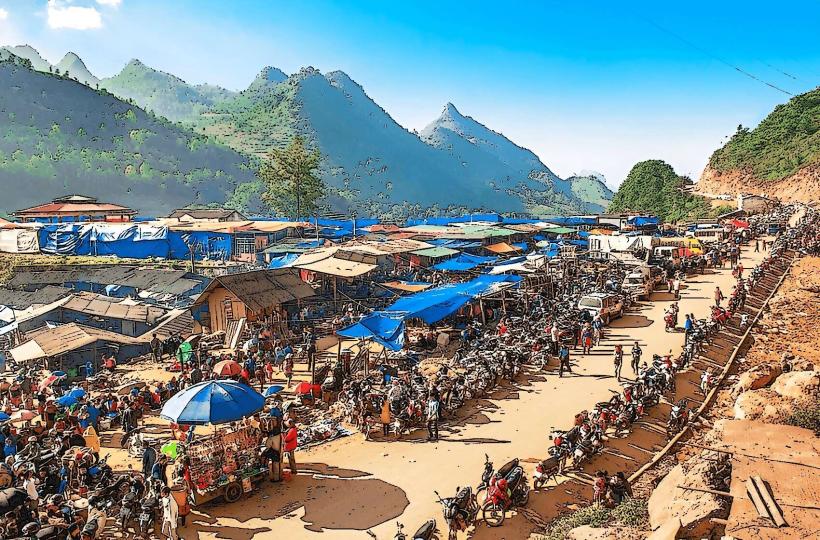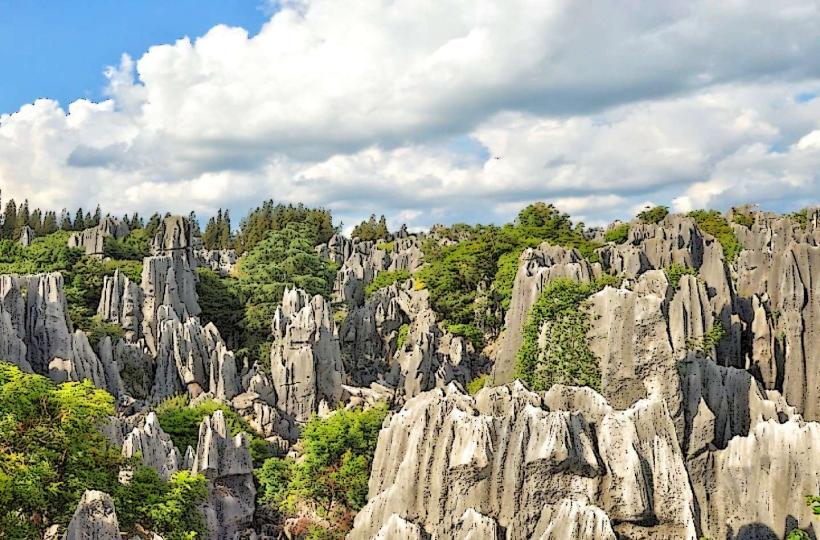Information
Landmark: Muong Hoa ValleyCity: Sapa
Country: Vietnam
Continent: Asia
Muong Hoa Valley, Sapa, Vietnam, Asia
Muong Hoa Valley is a terraced rice paddy landscape situated in the Sapa region of northern Vietnam.
This valley is characterized by its extensive agricultural terraces carved into the hillsides.
Visual Characteristics
The valley floor is dominated by rice paddies, which change color seasonally from emerald green in the growing season to golden yellow during harvest. The terraces follow the contours of the steep hills, creating a stepped effect. Surrounding the valley are dense forests and the peaks of the Hoang Lien Son mountain range. The primary construction material for local dwellings is wood and thatch.
Location & Access Logistics
Muong Hoa Valley is located approximately 8 kilometers southeast of Sapa town. Access is primarily via the provincial road DT157, which leads directly into the valley. Private vehicles can reach designated parking areas at the valley entrance. Local buses and taxis are available from Sapa town to the valley's edge. For access deeper into the valley, walking or hiring a local motorbike taxi is common.
Historical & Ecological Origin
The terraced rice cultivation in Muong Hoa Valley has been practiced for centuries by ethnic minority groups, including the Hmong and Dao people, for subsistence farming. The system is an example of traditional agricultural engineering adapted to steep terrain. Ecologically, the valley is part of a montane ecosystem characterized by high rainfall and specific soil types suitable for wet-rice cultivation.
Key Highlights & Activities
Trekking through the rice terraces is the primary activity. Visitors can walk between ethnic minority villages such as Cat Cat, Lao Chai, and Ta Van. Photography of the landscape, particularly during sunrise and sunset, is recommended. Observing local farming practices is also possible.
Infrastructure & Amenities
Basic amenities are available in the villages within the valley, including small guesthouses and local food stalls. Restrooms are generally available at these establishments. Shade is provided by trees and local structures. Cell phone signal (4G) is intermittent within the valley, with better reception closer to Sapa town.
Best Time to Visit
The best time for visual appeal is during the planting season (May-June) when the paddies are a bright green, or during the harvest season (September-October) when they turn golden. The dry season, from October to April, offers clearer skies and more comfortable trekking conditions. The wet season (May-September) brings frequent rain, which can make trails muddy but enhances the lushness of the vegetation.
Facts & Legends
A local legend suggests that the intricate patterns of the rice terraces were inspired by the scales of a dragon descending from the mountains. A practical tip for visitors is to wear sturdy, waterproof footwear due to the uneven terrain and potential for mud.
Nearby Landmarks
- Fansipan Mountain (10km Northwest)
- Sapa Stone Church (8km Northwest)
- Ham Rong Mountain (9km Northwest)
- Silver Waterfall (15km West)

